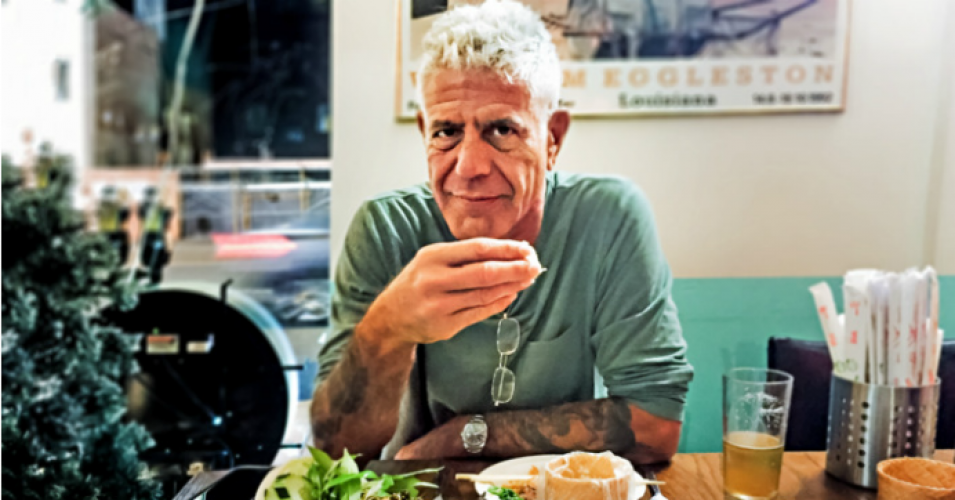We are saddened by the loss of Chef Anthony Bourdain, a man who dedicated his life to bringing people together through food, travel and writing. He turned food, something universal, into a greater conversation about humanity and being known – and nonprofits can learn a lot from him.
1. Ask the hard questions.
“What are our expectations? Which of the things we desire are within reach? If not now, when? And will there be some left for me?”
If we expect to move the needle on social issues, we have to be willing to ask the hard questions. What does success look like when it comes to fighting poverty in Austin? Who should we be engaging? Where should we focus our efforts to generate the greatest impact? What is it going to take to make sure all children enter kindergarten school ready?
Reflection and re-evaluation are necessary and vital parts of creating lasting strategic change.
2. Try new things.
“Without experimentation, a willingness to ask questions and try new things, we shall surely become static, repetitive, and moribund.”
Don’t be afraid to fail. Innovation is important in every aspect of life. It is important for progress and it is especially integral in the nonprofit space. If we are going to change the system we have to disrupt it – to think about things differently and fight poverty through multiple channels and in new ways. We should always be looking for opportunities to hone our efforts, trimming what isn’t working and empowering what is.
3. Our actions affect others (and vice versa).
“As you move through this life and this world you change things slightly, you leave marks behind, however small. And in return, life — and travel — leaves marks on you. Most of the time, those marks — on your body or on your heart — are beautiful. Often, though, they hurt.”
Everyone has the power to make a mark. Use your power, whether economic, social or otherwise to mark your community for good. We should strive to live united. The more work we put into unifying our community and focusing on our similarities rather than our differences, the closer we get to building real and impactful change.
4. Get to know your neighbors.
“If I am an advocate for anything, it is to move. As far as you can, as much as you can. Across the ocean, or simply across the river. Walk in someone else’s shoes or at least eat their food. It’s a plus for everybody.”
Mayor Steve Adler said it best at the March 22nd Council Meeting – We don’t know our neighbors as well as we should… I think each of us needs to walk across the street and introduce ourselves to our neighbors and down the street and across the hall, so that, collectively, we know the people that we live with better.
Whether it’s sharing a meal or volunteering your time, get to know the people around you. Learn their names and their needs. Knowledge makes a difference.
5. Put knowledge into action.
“Knowing is not enough; we must apply. Willing is not enough; we must do.”- Anthony Bourdain quoting Johann Wolfgang Von Goethe”
But knowledge isn’t enough. It isn’t enough to be aware of social issues facing our community, you must act if you want to create any sort of change.
Register to vote, call your representatives, volunteer with your friends, family and coworkers.
When we work together and live united, we can better care for immediate needs, confront stubborn problems and convene leaders to making a lasting impact in the lives of those in need in our community.
Thank you Anthony Bourdain for these insightful life lessons, you will be missed.
If you or anyone you know is in need of mental health help call 2-1-1 or Bluebonnet Trails Community Services at 1-800-841-1255 and a compassionate call specialist will connect you to valuable resources.
Photo: Laurie Woolever/Grub Street
